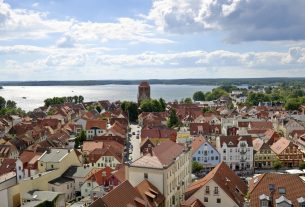Cuba is both a dream vacation destination and a country in crisis. Many Europeans who travel to Cuba return home disappointed and stressed. The Caribbean state is not communist enough for would-be communists, for fans of salsa and 50s glamor it is too poor and chaotic. Furthermore, the country’s beauty contrasts with the suffering of its people. It only helps to a limited extent if you spend your money there.
If you travel to Cuba, you can expect a lot of beauty. The country offers breathtaking nature. There can’t be much more beautiful beaches than the 12-mile stretch of white sand and turquoise waters of Cuba’s northern coast at the resort town of Varadero. Cuba has a lot of great landscapes to offer. This also includes the seafront of the capital Havana – along which visitors like to be driven up and down in classic cars – as well as protected natural areas such as in the Viñales Valley and colonial buildings in the city of Trinidad, for example.
In addition, music à la Buena Vista Social Club and cocktails such as mojitos and daiquiris create their own style. Today, there is no shortage of luxury hotels in Cuba either. Tourism is in full swing in Cuba, which is also reflected in the historic center of Havana. Here you have to expect to be approached every few steps by someone who wants to sell you something: a taxi ride, money exchange, cigars, prostitutes.
Strong collapse after the pandemic
The fact is: the socialist Caribbean island is heavily dependent on tourism. But it has suffered tremendously from the collapse of the corona pandemic. Unlike other countries in the region, such as the Dominican Republic, Cuba is recovering only slowly. This probably has something to do with the fact that the one-party state is currently establishing itself mainly through hardship, decay, repression and mass exodus. A vacation there is also not cheap. Canada is the most important country of origin for many travelers, but many visitors also come from Germany, even though it is now difficult for them to enter the United States after visiting Cuba.
“I can’t go to Cuba and expect to get everything I want here without any preparation,” says Christopher Trinczek, founder and CEO of Berlin-based tour operator Cuba Buddy. Together with the Cubanacán state tourist agency, they organize personalized trips to Cuba for groups of two to four people on average. He points out that due to lack of fuel and vehicles, you can’t even rent a car and drive in Cuba.
“Your Paradise, My Prison”
For Trinczek, the best thing about a visit to Cuba is the contact with the people: this gives you important insights into how you can be happy away from luxury and wealth. Overnight stays in family-run guesthouses are therefore an important part of the trips offered by his company. This is a good way to strike up conversations with people, the German News Agency’s Trinczek says at Cuba Buddy’s Havana office.
64 years after Fidel Castro’s revolution, life in Cuba is hard and problematic. The rule of the Communist Party, the US embargo and, more recently, high inflation have created a daily life characterized by deprivation. As well as food, medicine, fuel, machine parts and the ability to generate electricity.
Travel journalist Paco Nadal wrote in the Spanish newspaper in April “El País“, one should go to Cuba; tourists hardly notice the problems of the population. A small group of Cuban exiles, which included known dissidents, later wrote in a letter accusing the newspaper of glossing over the precarious living conditions of Cubans and state repression. “Your paradise, my prison,” they said.

Problematic: Cuba’s ruling elite controls the tourism sector
Martin Lessenthin, an expert on Cuba and a board member of the German Institute for Human Rights, is also extremely critical of tourism in Cuba. “The Cuban people hardly benefit from the foreign currency that Western vacationers bring to the Caribbean island “, points out. “On the contrary: foreign currency is used to stabilize the repressive apparatus, and the profits are collected by the party and military power elite and their minions, who totally control the tourism sector.”
Lessenthin refers to the crackdown on peaceful protests in Cuba in July 2021 and the jailing of hundreds of participants, including German-Cuban Luis Frómeta from Dresden, who received 15 years in prison for filming violence against protesters. “Those who want to travel to the Caribbean as a tourist with a clear conscience will find many alternatives to dictatorial Cuba.”
Who really earns from tourism in Cuba?
Amelia Calzadilla says that those who deal directly with tourists benefit from tourism. The 32-year-old mother of three from Havana was a tour guide. More recently, she has drawn attention to herself with Facebook videos in which she denounced abuses in Cuba. As a result, she has received death threats and is now no longer employed in the tourism sector. “Tourism workers can use the tips they get from foreigners to buy products sold only in foreign currency,” she says.
Contact with tourists has also been instructive for her, says Calzadilla of the German news agency dpa. “Through my clients, I’ve learned different truths about capitalism” than they taught her in school. Calzadilla points out that those who earn the most from Cuban tourism are foreign tour operators who employ Cubans on local terms through partnerships with state-owned companies.
Anyone interested in visiting Cuba must be prepared for restrictions. These include product shortages, power outages and mobility restrictions due to lack of fuel. Anyone who wants to come anyway should try to connect with people and help them, says Calzadilla. “The best thing about Cuba are the Cubans.”
with dpa material




